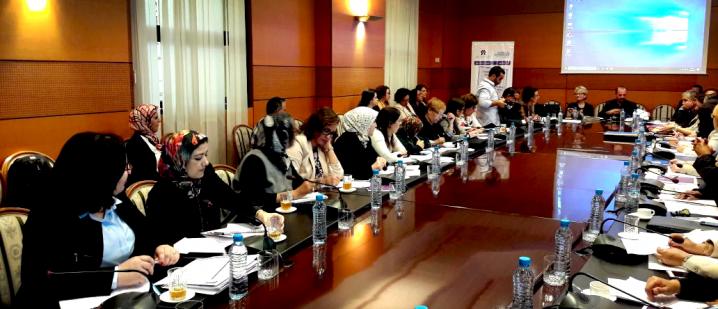Combating violence against women “a historic opportunity to be seized”

The legislation on combating violence against women was debated on 20 and 21 October 2017 in Rabat, Morocco. First, a study day addressed the Morocco and Tunisian experiences regarding laws to fight gender based violence (GBV). Second, a roundtable at the House of Councillors (Upper Chamber of the Parliament), made it possible to present the legal process leading the adoption of the GBV laws in Tunisia. These two events were organized by Morocco’s National human Rights Council (CNDH) and the UN Women.
The choice of the Tunisian experience is not coincidental. This country has just adopted a law against GBV in August 2017. This law meets the main aspirations of Tunisian women movement. In Morocco, the draft law NO 103-13 was adopted by the Council of the Government on 17 March 2016, then by the House of Representatives on 20 July 2016. This Bill was tackled in several important debates but yet to be adopted by the House of councillors. The study day and the roundtable were therefore held to advocate for a thorough review of this draft law which is far from meeting the expectations of defenders of women’s rights in Morocco.
Speaking at the opening session of the roundtable held on 20 October 2017 at the House of Councillors, Mr. Driss El Yazami, CNDH’s President, welcomed the enactment of the bill on fighting violence against women which reinforces the legal arsenal to protect women’s rights. Nevertheless, he stressed that this bill needs to be improved in order to become an effective tool to counter violence against women and to fight impunity in this field. “This is an opportunity to be absolutely seized”, said Mr. El Yazami to the Councillors. He pointed out that while the First Chamber has incorporated the recommendations of the Council, there are still certain aspects of this bill that should be reviewed to get the most comprehensive legislation possible.
Abdelhakim Benchammas, Speaker of the Moroccan Second Chamber, highlighted, in a statement delivered on his behalf, it is the common responsibility of all stakeholders (Parliament, government, national institutions, NGOs…) to fight against this phenomenon that undermine the society. He added that the House of Councillors is ready to interact with various advocacies to improve this bill in order to widely protect women against violence.
Leila Rhioui, representative of UN Women’s Maghreb Multi-Country Office, specified that a well-developed legislation must be comprehensive and multidisciplinary and must criminalize all forms of violence against women.
During this meeting with the Councillors, Sanae Benachour, Tunisian lawyer, shed the light on the main provisions of the Tunisian law on the elimination of violence against women. She stressed that this law sought to respect the four basic dimensions: prevention, protection, punishment and rehabilitation.
More details will be online shortly on the comparative analysis of the Moroccan draft law and the Tunisian law on the elimination of violence against women which was highlighted during the study day organized on 19 October 2017 in Rabat, Morocco.






















